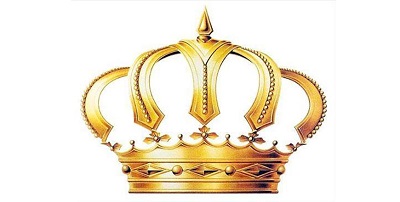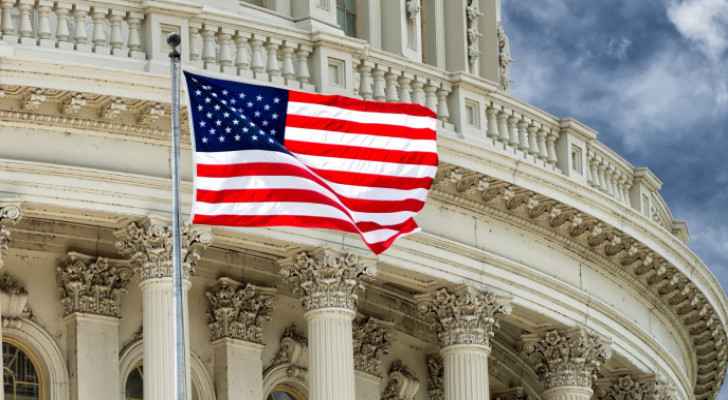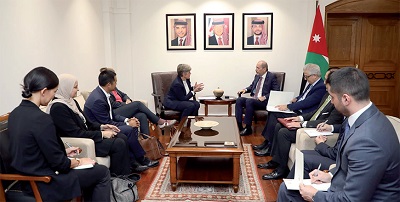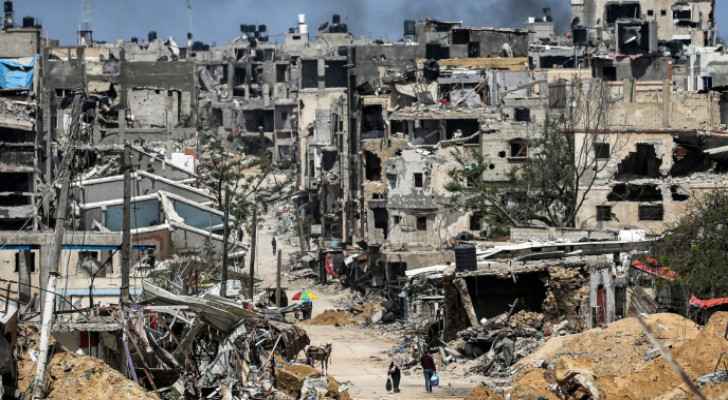Exclusive - 7 Developments and Surprises Return Syria Back to the Spotlight
Asharq Al-Awsat
The Syrian conflict is once again garnering the attention of western and Arab observers, sparking nearly the same heated debates that prevailed during 2012. The media has speculated over various political and military scenarios in store for the war-torn country. Current and former Syrian officials and economists have once again emerged on the scene to present their credentials. Western officials have also expressed their stance and expectations on Syria’s future.
Despite the world’s preoccupation with the coronavirus pandemic, Syria has returned to the spotlight due to seven developments:
1 – Rami Makhlouf
For two decades, he was the face of Syria’s economy and had the final say over its economy. However, since summer 2019, the tide started to turn against him. A campaign has since been launched to dismantle all of his economic institutions and military, humanitarian and political networks. Makhlouf responded with behavior that goes against “Syrian norms”. He sought defiance through diplomacy and then began making statements and social media videos. He refused to accept the government’s demand for his Syriatel telecommunications company to pay 185 million dollars in dues.
What are Russia and Iran’s positions from all of this? What does this mean for the regime? And why now? Is Makhlouf being backed by some foreign power? Is what is taking place in Syria similar to what happens in all civil wars when political change occurs when the warlords seek to legitimize their work?
Clarification after silence
2 – Russian campaign
A media campaign from circles close to the Kremlin kicked off shortly after Russian Defense Minister Sergei Shoigu visited Damascus in March when he requested President Bashar Assad to commit to the Russian-Turkish agreement on Idlib and brought up Syria’s reconstruction. Moscow remained silent for several weeks, but just days ago, it emerged with a counter-campaign. A Russian military official had toured Damascus recently to stress that Russian President Vladimir Putin has not changed his stance towards Assad. The Russian ambassador to Damascus was interviewed by a Syrian newspaper on Thursday during which he said relations between Moscow and Damascus were “friendly and strategic”, dismissing claims of turmoil in relations.
Has Moscow changed its stance? Did it deliberately remain silent over the campaign so that the message could reach Damascus before later retracting it? How far will Moscow go: Will it simply pressure Assad or have him removed? Does Russia really want to become embroiled in Syria’s messy economy? Has Russia’s influence in the region hit a wall and does it need a new approach?
3 – Russian-American dialogue
American officials have spoken of Moscow’s desire to resume bilateral dialogue. Most notably, US envoy James Jeffery told Asharq Al-Awsat that his country does not mind for Russia to maintain a military presence in Syria, but it does want Iran to leave. United Nations envoy Geir Pedersen recently told the Security Council that Russian-American dialogue could play a “key role”, encouraging both parties to resume it.
Diplomats wonder why Moscow would want dialogue at the moment. To what extent has its stances changed? Can an agreement be reached before the American elections? Is Putin really “angry” with Assad or is this just another of his maneuvers?
Tactical withdrawal
4 – Iranian withdrawal
American and Israeli officials have confirmed that Iran was “tactically” withdrawing from Syria after Israel carried out a series of heavy raids on Iranian positions from Damascus to Aleppo to Deir Ezzour. The development coincided with Iranian supreme leader Ali Khamenei and other officials’ declaration that Tehran was keeping its forces in Syria and they were committed to “Dr. Bashar Assad as the legitimate president.” Iran also encouraged factions loyal to it to speed up their return to southern Syria in areas close to the Israeli-occupied Golan Heights in what is seen as defiance of the 2018 Russian-American-Jordanian-Israeli agreement to keep “non-Syrian” forces - meaning Iran - away from the region. Days ago, Russia did not hesitate in deploying its troops to force Iranians out of the Daraa countryside. Significantly, an Iranian official had recently declared that his country had spent some 20 to 30 billion dollars to support Damascus and it now wants that money back.
What is Iran seeking to achieve from the withdrawal and redeployment? Is it related to its economic crisis incurred from the sanctions and coronavirus outbreak or Russian pressure at Israel’s behest? Why has it brought up Damascus’ financial debt to Tehran? Why have Washington and Tel Aviv started to again focus on the Iranian presence?
5 – Idlib truce
Despite the many violations to the Idlib truce, in place since March 5, Russia and Turkey continue to respect their commitments and deploy joint patrols. One patrol had moved deep into Idlib towards Latakia and Turkey has set up base atop a strategic mountain. Despite the tensions between Moscow and Ankara over Libya, where each side supports rival forces in the country, they are still cooperating in Idlib and the area east of the Euphrates River.
This raises questions about the fate of the Idlib truce and how sustainable it is. How much will the tensions in Libya spill over in Syria? What about the extremists in Idlib and when will Russia’s patience run out?
Change
6 – Syrian elections
Parliamentary elections were postponed to July due to the coronavirus outbreak, but attention is fixed on the presidential elections, set for mid-2021. Western officials have spoken of supporting an opposition candidate and the US has again resumed financial support for the opposition. Some opposition figures have even declared their candidacy. An Israeli researcher even named Tel Aviv’s preferred candidate for the presidency. Pedersen said the elections will be held based on current constitutional arrangements. He explained that the UN has not been asked to monitor the polls. The envoy said the elections must be held in line with resolution 2254 and that they must be free and transparent. They should be held based on the new constitution and under UN supervision, he suggested.
Will the US, which is in store for its own presidential elections in November, and Russia reach understandings that would allow the Syrian elections to serve as a gateway for change? Will they reach understandings on reconstruction, sanctions, Iranian presence and the political process? Will this be the way out for Moscow since it opposes the idea of regime change?
7 – Sanctions and change
The US has again brought up the opening of the Al-Yarubiyah border crossing between Iraq and the eastern Euphrates region in order to send aid after noticing that Russia had not met its commitments to deliver aid from Damascus in line with an agreement that was reached earlier this year. Observers are predicting that Russia and the West will clash over this issue at the Security Council. A dispute already exists over sanctions. Russia blames American and European sanctions for Damascus’ inability to tackle the coronavirus and living crises. Washington and Brussels retorted by saying that the sanctions have not impeded the delivery of medical or humanitarian aid to Syria.
Will these issues pave the way for a gradual agreement or will they lead to more division?
It is not easy to predict where these developments will lead Syria, but there is no doubt that they raise many questions that local and foreign parties are trying to analyze to suit their positions, while everyone else wallows in uncertainty.
Latest News
 King orders holding parliamentary elections in accordance with law, checks on electoral commission’s preparations
King orders holding parliamentary elections in accordance with law, checks on electoral commission’s preparations- N. Macedonia starts elections that could decide stalled EU talks
 US Senate passes bill for aid to Israeli Occupation, Ukraine, Taiwan
US Senate passes bill for aid to Israeli Occupation, Ukraine, Taiwan Safadi discusses support to Syrian refugee with DRC
Safadi discusses support to Syrian refugee with DRC Israeli Occupation aggression on Gaza enters 200th day
Israeli Occupation aggression on Gaza enters 200th day
Most Read Articles
- Safadi discusses support to Syrian refugee with DRC
- King, Kuwait emir reaffirm pride in deep-rooted relations
- Israeli Occupation aggression on Gaza enters 200th day
- Kuwait channels $24 billion in development assistance to Jordan in 24 years
- UNRWA’s role in Gaza indispensable — Foreign Ministry
- Jordan condemns Israeli 'war crimes' in Gaza, calls for accountability
- King orders holding parliamentary elections in accordance with law, checks on electoral commission’s preparations
- Jordan outperforms MENA average in women, business, law indicators — report
- General Motors lifts 2024 profit forecast after strong Q1
- Baby delivered from dying mother's womb in Gaza 'miracle'